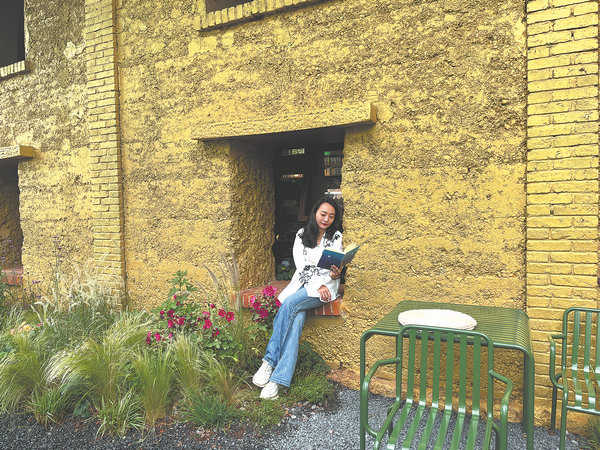

In 2005, Baiwu, then poverty-ridden, was designated a national historical and cultural village. Today it preserves 24 historical relics from the Ming and Qing dynasties — including guild halls, temples, bridges, wells and city walls — along with over 2,000 traditional dwellings with gray-tiled roofs and earthen walls, says He Jian, 45, who works in cultural tourism in Nagu town.
"While Baiwu village is recognized as a historical and cultural destination, its narrative centers on the traditional theme of 'copper casting and south-to-north copper transport'. However, this perspective is somewhat limiting. Through this inaugural poetry festival, we aim to weave a modern dimension into Baiwu's identity," Chen says.
This poetry festival offers visitors an experience beyond conventional historical sightseeing — they may stumble upon unexpected delights and discoveries, he says.
One can find British poet Philip Larkin's Water at the bottom of a brook running through the village, or Wagner's Nail on a door and The Pitchfork in a haystack. Observe closely and one might read Thomas' Farm Child or glimpse Kuaile De Shan (Happy Mountain) by Pumi ethnic poet Cao Wenbin.
For Chen, what matters most lies in the festival's opportunities for people to encounter poetry. "When someone reads a verse and feels an inner spark or a ripple of resonance, it matters to me," he says.